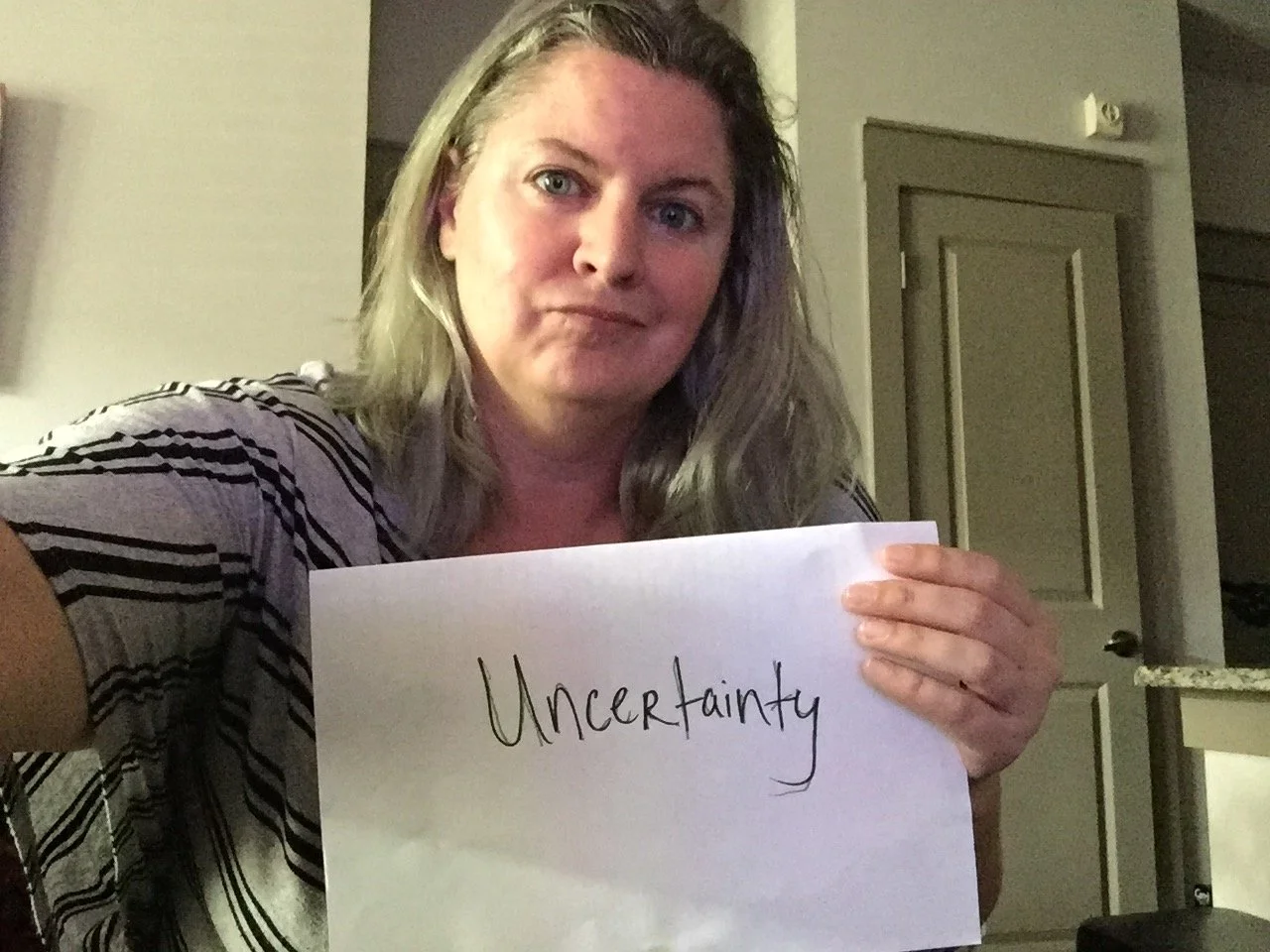Ea
"I can't sing" -
from my count, about half of the people I meet say this to me when finding out that I’m a voice trainer/singing teacher.
It’s not true. If you can speak, you can sing. How well you do it is relative.
I’ll set forth that there are two main reasons why people believe they can’t sing:
1 - Some folks are not singing “in tune” - they are singing along with a song, but maybe they’re not “matching the pitches”. Some might consider themselves tone deaf (amusia).
2 - Some folks don’t like their voices for a variety of reasons.
TONE DEAF/MATCHING PITCH
Concerning tone deafness, Vocal Instructor Karyn O’Connor writes:
“The term 'tone deaf' tends to be applied indiscriminately to a constellation of music processing, perceptual and production deficits, which leads to a lot of misdiagnoses (many of them being 'self diagnoses'). In reality, though, there are few truly tone deaf people - it is estimated that only between two and five percent of the population is medically tone deaf - and there are varying degrees and types of tone deafness.”
She’s got a great in depth article here on overcoming Pitch Problems. Other than the rare small percent of people who may be diagnosed with amusia, matching pitch can be a learned skill.
After many years of working with clients who think they may not be able to sing in tune, I have not found one of them to be truly tone deaf. It is often the lack of musical exposure and/or the lack of trying to sing that causes it to be difficult when trying to match pitch. I put most of my beginning clients who have ventured into learning to match pitch in one of two camps:
There is the traumatized singer.
Someone (parent/teacher) told them when they were little that they couldn’t sing, so they believed it and stopped. Oh, it makes my heart hurt to hear these stories.
Parents/Teachers/People around Children: Please don’t say this to a child, or anyone. Pitch matching is not an automatic knowing for everyone. To tell someone they can’t sing is crushing. I witness the crushed-ness alive and well in my adult clients (many 50 and 60 year olds) who have timidly and bravely sought out my assistance hoping to find out they really can sing. Oh, and the joy on their faces when they make sounds they like? What a happy day!
Self-Confidence can go a long way in pitch matching! Just believing you can goes a long way!
There is the inexperienced singer.
Pitch matching may be a struggle because you didn’t listen much to music growing up, or lacked musical variety in listening. And/or you may have had little to no exposure to singing in a choir or singing with your family or community (note: if someone told you that you couldn’t, you likely stopped).
Both the traumatized and inexperienced singer are beginners. Their muscles are often stiff, because of not being used, and being nervous. Often we need to train their ear to identify what it’s hearing. That communication with the brain and then the vocal folds can take time. As the body (muscles) frees up, all of the sound making parts can have a better chance of relating what it hears into action.
JUST ‘DON’T LIKE’ IT
For those folks that can match pitch ok, but don’t like the quality of their voice…
This may just be about preference.
Some people want to sound like Dolly Parton, some like Renee Fleming, some like Adele, and when they sing their songs, it doesn’t sound the same. This is the more common situation when people tell me they can’t sing. Their voices don’t match the stars they want to emulate. Rarely will people be able to mimic their favorite artists exactly. Accepting that your voice is your voice, that we are all different, and that is awesome! My world needs more than Dolly and Adele impersonators! I’ll come back and explore the idea of learning to love your voice in a few weeks.
Sometimes getting to know all of the different weights and colors of how to make sound can change a person’s perspective of their voice. Sometimes the right weight, or brightness or dark quality can also correct in pitch accuracy too. Learning how to use your voice (and your mouth, and tongue, and ab muscles, etc) can drastically change the sound you’ve been trying to make instinctively. Singing is not necessarily instinctive for many! Learning to coordinate and strengthen the musculature can go along way for pitch accuracy and a pleasant sound (if that’s what you’re going for!).
Cari Nierenberg confirms reporting on a study that labeled poor singers as such because of a lack of music training or muscle weakness:
The study found that anywhere from 40 to 62 percent of non-musicians were poor singers.... It also found that roughly 20 percent of people can't sing accurately because they don't have good control of their vocal muscles.
Maybe some people are “born with it”, but I’ve met some of those (subjective), and they are still insecure about their voices. We want to sound good. What is good? Is it better than….? How are you measuring a good voice? What sounds bad (if pitch matching is okay), and what sounds good? I’m always curious, like above, what they might mean by “poor singers”. Is it more than the ability or skill to match pitch?
Oh, and what I have been noticing lately is that some of the challenge for newly pitch matching folks is the next step to memorize pitch patterns. The pitch and rhythmic patterns are what make a melody identifiable. This could be a subject for another day too!
Are you curious about singing again? Or, for the first time? Come and play with me! I’ve yet to meet one of the 2-5% who are actually tone deaf.
julie

